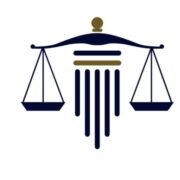Best Toxic Mold Lawyers in Polokwane
Share your needs with us, get contacted by law firms.
Free. Takes 2 min.
List of the best lawyers in Polokwane, South Africa
About Toxic Mold Law in Polokwane, South Africa
Toxic mold, a hazardous type of mold that can grow indoors under certain conditions, poses significant health risks. In Polokwane, South Africa, residents may encounter issues with toxic mold due to the region's climate and building conditions. Legal ramifications can arise when mold exposure is linked to health problems or property damage. Understanding the legal landscape surrounding toxic mold is crucial for tenants, property owners, or anyone potentially affected.
Why You May Need a Lawyer
There are several common scenarios where seeking legal assistance becomes important. You may need a lawyer if you are experiencing health problems you believe are related to toxic mold exposure in your home or workplace. Similarly, if you discover toxic mold in a property you own or lease, you may require legal guidance for remediation obligations or pursuing damages. Landlords might also need legal help if accused of negligence in maintaining mold-free properties. Legal professionals can help navigate insurance claims, tenant-landlord disputes, and advise on property disclosure requirements.
Local Laws Overview
Local laws in Polokwane concerning toxic mold primarily focus on landlord-tenant responsibilities and property safety standards. While South Africa does not have specific federal laws targeting toxic mold, general health and safety legislation can apply. Landlords are typically required to ensure their properties are habitable, which can involve addressing mold issues. Tenants have the right to report and seek rectification of environmental hazards. Building codes and inspection standards may also indirectly address mold prevention and control, emphasizing maintaining indoor air quality and proper property maintenance.
Frequently Asked Questions
What is toxic mold?
Toxic mold refers to certain types of mold that can produce mycotoxins, which may pose health risks to humans.
What health issues can toxic mold cause?
Exposure to toxic mold can lead to respiratory issues, allergic reactions, and other health problems such as headaches and fatigue.
How do I know if my property has a mold problem?
Visible mold growth, a musty odor, and increased allergy symptoms in occupants are common indicators of mold presence. Professional inspection can confirm toxic mold.
Are landlords responsible for removing mold from rental properties?
Yes, landlords are generally required to maintain habitable living conditions, which includes addressing mold problems promptly.
Can I break my lease if my rental has a mold problem?
Depending on the severity and if the landlord fails to address the issue, you might have legal grounds to terminate the lease. Legal advice should be sought.
How can I prove that my health issues are caused by mold exposure?
Medical documentation linking symptoms to mold exposure and an environmental assessment of your property can support such claims.
What can I do if my employer neglects mold issues at my workplace?
Report the issue to your employer, and if unresolved, contact an attorney or relevant health and safety authorities.
Does insurance cover damage from toxic mold?
Coverage can vary; review your policy or speak with a legal expert to understand your insurance coverage in relation to mold damage.
Who should I call for a professional mold inspection?
Contact certified environmental assessment professionals or companies specializing in mold detection and evaluation.
What steps should I take if I discover mold in a property I’m buying or selling?
Address and remediate the issue before sale or purchase, and disclose any known mold problems in sales agreements.
Additional Resources
Consider reaching out to local government bodies such as the Polokwane Municipality or health departments for guidance. Environmental health inspectors and consumer rights organizations can offer support and information. Additionally, the South African National Department of Health and legal advisory services may provide further assistance.
Next Steps
If you need legal assistance concerning toxic mold in Polokwane, South Africa, start by compiling all relevant information and documentation, including photographs, medical records, and any communication with property managers or landlords. Then, consult a legal professional experienced in environmental law or property disputes. Many legal firms offer initial consultations, which can be an effective way to understand your rights and options. Prioritizing health and safety should be the main focus as you navigate any related legal processes.
Lawzana helps you find the best lawyers and law firms in Polokwane through a curated and pre-screened list of qualified legal professionals. Our platform offers rankings and detailed profiles of attorneys and law firms, allowing you to compare based on practice areas, including Toxic Mold, experience, and client feedback.
Each profile includes a description of the firm's areas of practice, client reviews, team members and partners, year of establishment, spoken languages, office locations, contact information, social media presence, and any published articles or resources. Most firms on our platform speak English and are experienced in both local and international legal matters.
Get a quote from top-rated law firms in Polokwane, South Africa — quickly, securely, and without unnecessary hassle.
Disclaimer:
The information provided on this page is for general informational purposes only and does not constitute legal advice. While we strive to ensure the accuracy and relevance of the content, legal information may change over time, and interpretations of the law can vary. You should always consult with a qualified legal professional for advice specific to your situation.
We disclaim all liability for actions taken or not taken based on the content of this page. If you believe any information is incorrect or outdated, please contact us, and we will review and update it where appropriate.










